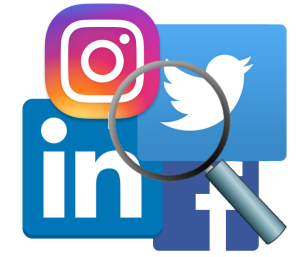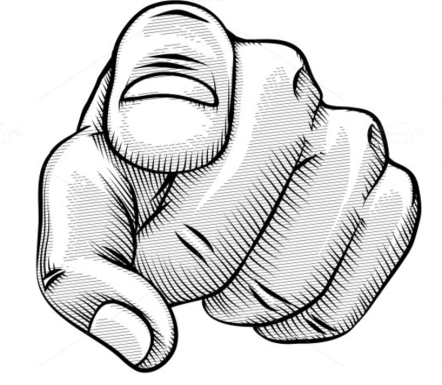HHTX3
Personal Reflection Coursework 3a
This post is a reflection on Term 1 in Social Development in Practice. I discuss my arguably problematic preconceptions, what I have learned through what has changed and what has stayed the same, the literature that consolidates this learning as well as what I think it still missing and what I hope to learn going forward.
When thinking about the ‘role of the development practitioner,’ I ask myself why it is necessary to ask in the first place. I naturally begin to think about why I chose to apply for a Masters in Development – in my application I wrote that ‘My ultimate aim is to instigate change and to contribute socially ‘towards Human Rights efforts; to gain a deeper understanding of this (social) divide and a deep insight into how to effectively reduce the inequality gap. Also about ‘my passion for analysing life’s questions and my unwavering focus on tackling the issues of inequality and injustice,’ but the longer I study this course the more I realise I had no real grasp on what ‘change’ really looked like or what injustice really meant. I wonder what informed my opinion that whatever I had to contribute towards research efforts would be remotely impactful.
We discussed ‘positionality’ and it finally became clear. I am now starting to become aware of my unconscious bias – an automatic tendency to push boundaries I see as hindrances, despite my authority to and justification for doing so. I wonder what it is about being British raised and educated that puts me at a perceived ‘advantage,’ and I am left to acknowledge what can only be described as the postcolonial remnants of white supremacy and superiority from academia and education to knowledge and research.
Watson asserts that:
‘There is no doubt that the processes of colonisation and imperialism fundamentally changed relations between parts of the world, articulating with pre-existing social and governing structures in colonised territories in multiple and complex ways. Such histories continue to express themselves through patterns of inequality affecting economy and society and, importantly, respect for knowledge and expertise (Connell, 2007).’
It is unsurprising then that even the worlds’ largest development funds or agencies are forwarded by modernisation, market-based approaches and neo-liberal ideals of said ‘development,’ which have allegedly gone on to reproduce inequalities of dependency, such as through the dreadful Structural Adjustment programs of the 70s as controversially expressed by ex-World Bank economist Joseph Stiglitz and their continued effects, as well as the exploitative trade agreements which still remain.
A trip we took to Windsor to use role play to debate the issues around Badda Cas in Somaliland was interesting. Many took the opportunity to inappropriately make light about things as dark as hunger and death, but many more, perhaps wearing the socially conscious and culturally sensitive hats of a development practitioner, felt uncomfortable. People were uncomfortable in the irony that a group of ‘development’ students from a Russell Group university and characteristically elitist institution could take a trip to a luxury 17th century British country house in the very town synonymous with royalty – to go and discuss issues pertaining to a country halfway across the world in East Africa. I argue that there is a certain entitlement in this practice; that whilst role play in and of itself is very useful in furthering development discourse and allowing individuals to better understand what it truly means to be disadvantaged, choosing to do so in such an environment is regressive and reproduces the hierarchies and structures of Western authority we as development practitioners should seek to dismantle. I believe that as a development practitioner, every practice should we done without entitlement or imposition; without the authoritative mindset of the ‘rescuer’ Anne Tooney speaks of, not the intention to sympathise, but to empathise.
Interestingly, when highlighted in the final plenary and reflection session on the workshop, one tutor actually confirmed that these are the powers that be within development; that these processes are common and lasting, to which many students felt disappointed – perhaps that a tutor of development should be more progressive in his thinking, or perhaps that the burning fire we all came into the department with was starting to dwindle in both acknowledgement and acceptance of the sheer force of inequality. I am then grateful that this focus on people-centred development, whilst difficult in terms of understanding and consolidating the needs of diverse groups of people, is comparatively justifiable. Working towards safeguarding the environments and livelihoods of the most vulnerable from the ground up seems morally just. In line with this sentiment and the criticism of the development industry, and the subsequent formation of ‘post development’ in the 1990s, I assert that it is crucial to deconstruct development at its core. When discussing development and its origin, namely the reconstruction of the war-torn states affected by World War Two, it was a particularly economic process of restructure and restoration as expressed by Sachs (1992) and Escobar (1995) as discussed by McGregor. Development is now starting to look similar; Skyscrapers and financial districts like those in Eko Atlantic Nigeria replacing immediate needs for sanitation and security for inhabitants of informal settlements who have built their livelihoods, and must now have them completely uprooted to make way for increased foreign investment. I have begun to understand that development should simply cannot be gazed at through the lenses of entitlement or presumption. Left is not best and white is not necessarily right when pertaining to real lived experiences and struggles. Financial literacy is not the definition of development, but the ability to attain and choose or create a livelihood that is satisfactory (in reference of the thinking in line with Sen and Kabeer.)
Going forward, I hope to continue to be reflexive in my approach. I hope to question and challenge myself constantly about my intentions, my right to intervene and my perceptions about development. I have essentially had to ‘unlearn’ my preconceptions about the relevance of my contribution to development discourse as well as my role as a practitioner. Clarke and Oswald (2010) essentially state that to instigate Emancipatory social change, in their opinion the most progressive type of social change that departs from the dependency and reproduction of inequality we see in some cases today, one must be able to challenge social norms, shift power relations, and change practices, but assert that there is a need to navigate the complexities around all these. From my past experience I can confidently assert that intersectionality and nuances around society and culture are virtually impossible to navigate with one standard framework or approach. Consolidating differing needs, cultural norms and pre-existing power dynamics that Fraser and Kabeer often reference is a challenging task. The class workshops in participatory video, enumeration, ethnography and participatory planning saw a variety of different approaches and lenses through which to look at problem solving, confirming once more that a development practitioner must be flexible in thinking, but also that there are relevant and useful contributions development practitioners can make when projects and processes are well informed, and genuine in approach.
I certainly do not have the answers to the questions of how to dismantle the power relations surrounding development and how they exacerbate inequality, nor do I fully understand how and a development practitioner must situate him or herself to help progress this. I don’t even have the absolute justification that a development practitioner must ‘help’ at all, however understanding that above all, ‘the protection and promotion of local cultural priorities and beliefs’ (McGregor 2009) is critical, and where the real and immediate needs of the most vulnerable in society is focused on, is a good place to start when practicing people-centred development.
Sources
- Naila Kabeer – Resources, Agency and Achievements: Reflections on the Measurement of Women’s Empowerment (1999)
- Anne Toomey – Empowerment and disempowerment in community development practice: eight roles practitioners play (2011)
- Vanessa Watson Seeing from the South: Refocusing Urban Planning on the Globe’s Central Urban Issues (2009)
- Andrew McGregor – New Possibilities? Shifts in Post-Development Theoryand Practice (2009)
- Clarke and Oswald – Introduction: Why Reflect Collectively on Capacities forChange? (2010)





 There is usually a background reason or motive for everything that happens, and this is the notion that has been central to all my posts thus far. Catfish the TV show for example, is a prime example of this search for intention. They make a specific effort to dig deeper into the lives of the individuals committing the identity theft and often find a broken or bullied soul. In the case of Leah Palmer and other victims from the episodes I’ve watched, the people stealing identities are within the same social circle as the thief, and there can arguably be malicious intent, however for the most part, individuals find a sense of confidence, beauty or power in embodying a persona other than their own. It can be their escape; their opportunity to finally feel beautiful, or to finally feel recognised.
There is usually a background reason or motive for everything that happens, and this is the notion that has been central to all my posts thus far. Catfish the TV show for example, is a prime example of this search for intention. They make a specific effort to dig deeper into the lives of the individuals committing the identity theft and often find a broken or bullied soul. In the case of Leah Palmer and other victims from the episodes I’ve watched, the people stealing identities are within the same social circle as the thief, and there can arguably be malicious intent, however for the most part, individuals find a sense of confidence, beauty or power in embodying a persona other than their own. It can be their escape; their opportunity to finally feel beautiful, or to finally feel recognised.
 An article on ‘How One Stupid Tweet blew up Justine Sacco’s Life’ builds on this ‘cross-over’ further. The article is essentially an update on the incident that took place during December of 2013, in Justine Sacco, ‘the senior director of corporate communications at IAC’ took to twitter to make particularly controversial jokes.
An article on ‘How One Stupid Tweet blew up Justine Sacco’s Life’ builds on this ‘cross-over’ further. The article is essentially an update on the incident that took place during December of 2013, in Justine Sacco, ‘the senior director of corporate communications at IAC’ took to twitter to make particularly controversial jokes. It is ok to make jokes (appropriate ones remember,) and be yourself on your social media profiles. Employer’s want to see that you are REAL, and not just words on a page. Michael Weiss in a BBC Video on How to Promote Yourself Online encourages individuals to ‘tell a story’ through their social media platforms and essentially sell yourself to prospective employers. He also puts an emphasis on showing passion. It is one thing to show an employer why you may be able to complete a task or fulfil a job role, but it is another to show them why you want to; why you are passionate about the field and what differentiates you from the next Tom, Dick or Harry.
It is ok to make jokes (appropriate ones remember,) and be yourself on your social media profiles. Employer’s want to see that you are REAL, and not just words on a page. Michael Weiss in a BBC Video on How to Promote Yourself Online encourages individuals to ‘tell a story’ through their social media platforms and essentially sell yourself to prospective employers. He also puts an emphasis on showing passion. It is one thing to show an employer why you may be able to complete a task or fulfil a job role, but it is another to show them why you want to; why you are passionate about the field and what differentiates you from the next Tom, Dick or Harry.
